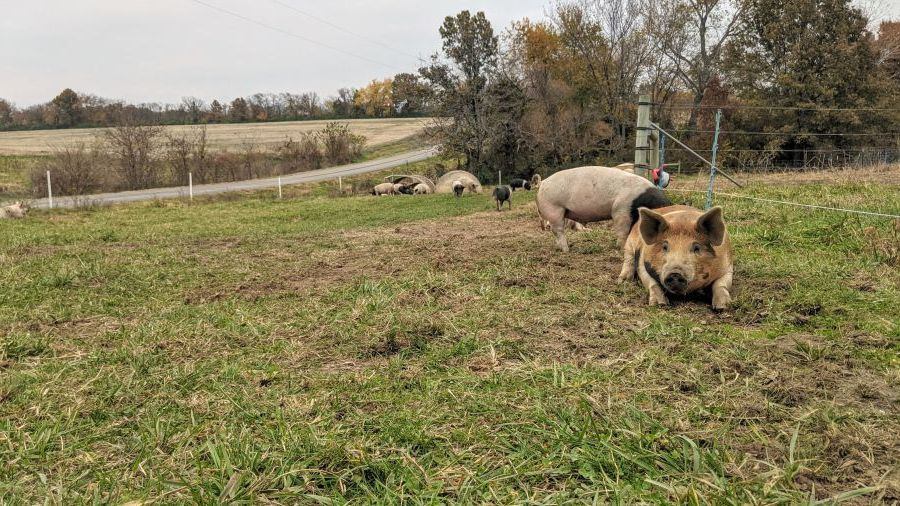What is an Herbal Salve?
posted on
August 16, 2022
There are all sorts of herbal salves on the market. David's Pasture carries two different kinds made with plants for different ailments.
The term salve gets thrown around, but what exactly does it mean?
An herbal salve is where an herbal oil is blended with beeswax to make a more solid texture to spread on the desired area of the body.
What's the difference between an herbal oil and an essential oil? They're both made with plants, right?
Correct! The difference is an herbal oil is made by extracting the medicinal properties from the plant into another oil by either cooking the herbs low and slow in oil or letting them sit together in a jar, preferably in the sun, for a couple of weeks.
An essential oil is made by distilling the actual volatile oil of the plant itself, and this makes essential oils a lot more concentrated and potent.
I love making herbal oils. There is something so special about picking out your herbs, mixing them in the oil, and letting them synergistically work together. To me, it seems as if the herbs whisper their healing secrets to the oil. The oil then holds onto those secrets waiting to be applied to your skin.
Salves can be made for various ailments such as bug bites, joint pain, sleep aid, dry skin, diaper rash, etc.
Two of my favorite salves to make are my Good Stuff Salve and my Good to the Bone Salve. Each salve is intentionally crafted with herbs that fit the situation. Choosing which herbs is a fun yet a serious task. You want to make sure the action of the plant matches the need of the body, which takes research. And you also want to make sure the herbs you choose can work synergistically.
What does synergy mean?
According to the online dictionary, synergy is "the interaction or cooperation of two or more organizations, substances, or other agents to produce a combined effect greater than the sum of their separate effects."
Another way to think of synergy is to imagine a guitar. It has six strings. It sounds good if you pluck just one string, and you're technically playing music. But imagine if you played three strings with the correct fingering for a chord? All the notes would blend together in perfect harmony.
This is what it can be like when making an herbal preparation!
Yes, I could make my Good Stuff Salve with just plantain, and it would work fine. But what if I add yarrow, which stops bleeding, and antibacterial essential oils? On top of that, the olive oil and beeswax also contain antibacterial properties!
Or the Good to the Bone Salve might be nice with just an herb that helps with inflammation, but what if those herbs also have warming properties that can help soothe?
There is a lot of science behind herbal medicine, but it's also like writing a song. Your creations can be as unique as you need them to be!
Herbal medicine is simple, but that's just what our bodies like. A salve might sound like something from the past, but you would be surprised that they can still pack a powerful punch!

I hope this helped you understand what makes salves so unique!
Kaitlyn



